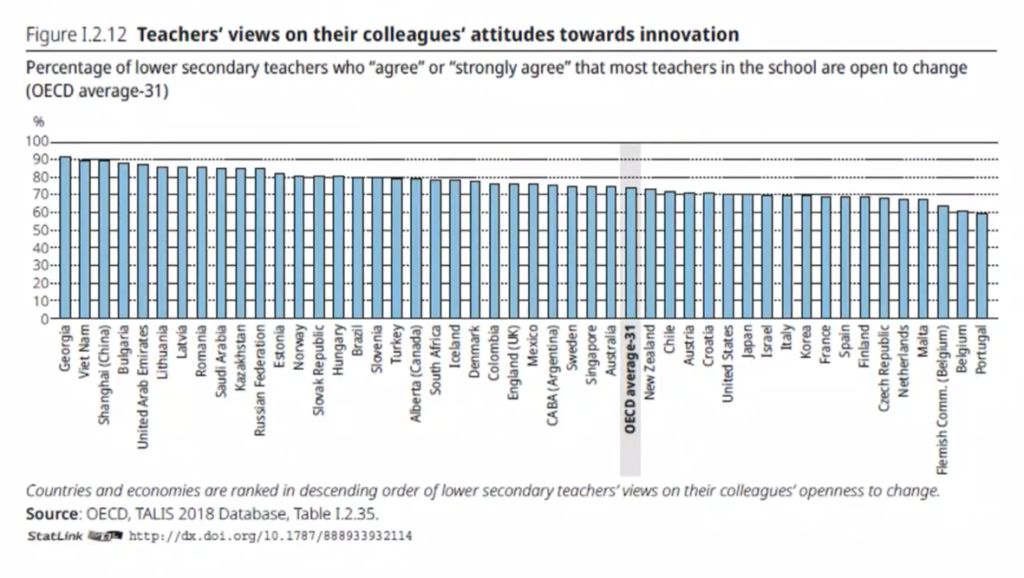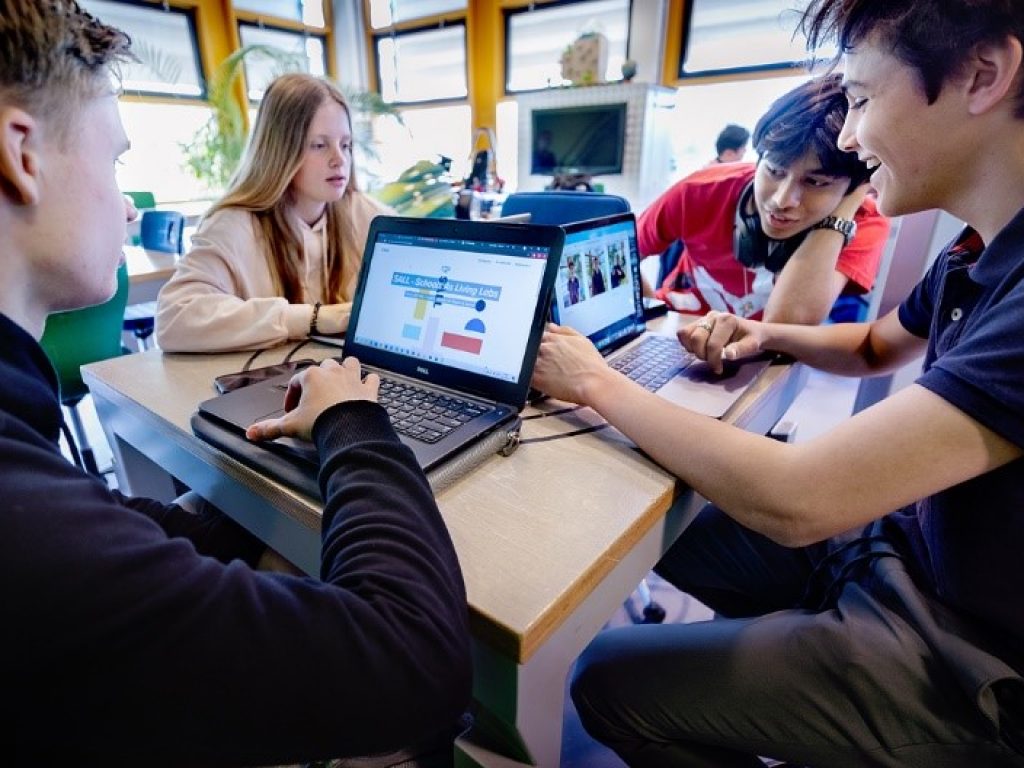“The challenges are very clear; the solutions are really clear. So, how come these solutions are so difficult to develop and implement within Europe?” Michael Teutsch, from the European Commission, did not mince his words when he reported on actions taken at the European level to change the formal education system. One thing is certain: in an age of misinformation and lack of trust in science, several approaches are tested and implemented – and for some of them with great success – at a small scale to rethink learning boundaries. But difficulties appear when people try to scale up these confidential initiatives to a larger scale.
In order to open new roads to science education in Europe, the Schools As Living Labs project invited high-level speakers and policymakers to reflect on what policy measures should be implemented to foster the dissemination of innovating formal education system in Europe, and among them Open Schooling. Because, as the roundtable convenor, Matteo Merzagora, Director of TRACES, a Think-And-Do-Tank on Science and Society, declared: “it’s not a matter of whether education should change: education must change if we are to equip 21st-century students with the skills they need to adapt in a changing environment.”
To make changes happen at the system-level, Cassie Hague analyst at the OECD, Tuija Hirvikoski council member of ENOLL, and Michael Teutsch head of unit at the European Commission, invited as speakers by the Schools As Living Labs project, all agreed on the same strategy to adopt:
- Scale-up from successful individual classroom-level initiatives
- Collaborate across the system with different actors and areas involved in the education system
- Be patient, these kinds of changes don’t happen over the night
The present landscape is encouraging and there are some reasons to hope that major changes might happen. Cassie Hague, analyst at the Centre for Educational Research and Innovation at the OECD, presented reflections and learnings from an educational project they recently conducted. The OECD assessed teachers’ attitudes towards innovation and the results are promising as Cassie summarised: “Teachers are open to innovation, although that might be at different levels in different countries. So, with the right support and structure, there is a lot of possibilities to transform science teaching in European countries.”

One of the challenges that must be addressed is trust. Trust between the different stakeholders of the education field. Tuija Hirvikoski, director of Laurea University of Applied Sciences and former president and council member of the European Network of Living Labs, described how in the early 2000’s schools, higher-education institutions, SMEs, large companies and cities in Finland started to collaborate, to operate as a living-lab and to convince the European politicians about the need of open innovation, open science and open school. Based on her experience, the key is trust and collaboration:
“The decision-makers should have the courage to trust the teachers and the teachers to trust their students. In the long run, this will create a completely new open science & citizen scientists in Europe”.
And the question obviously goes beyond science learning and teaching. Michael Teutsch, head of unit, schools and multilingualism, DG education, youth, sport and culture at the European Commission, insisted that the issue be seen as a whole, broadening our perspective beyond school curricula:
“Make the learning more effective in terms of competences acquirement but also to make it more attractive to students is actually not only a science-related issue. It’s really about good teaching in the 21st century, so it’s about more collaborative teaching methods, reaching out to society to innovate together and making assessment. […] When we discussed the key competencies recommendations in 2018, we shifted the focus and completed a bit for not only looking at the ‘what’ – which competencies – but also put quite some emphasis on teachers’ education, assessment and new learning methods.”
At Schools As Living Labs, we opened a public consultation to develop a set of policy recommendations and mainstream the open-schooling education approach. This roundtable was a great opportunity to gather participants inputs on policy objectives and gaps they are facing on the national level. he main elements that came up are: giving more autonomy to teachers, developing a flexible curriculum, developing a supportive evaluation framework, providing time and support for collaboration, fostering pan-European collaboration, etc. The results will feed directly into the formulation of Schools As Living Labs’ roadmap to European policies for Open Schooling. Contributions are still welcome and comments can be made directly in the roadmap. The roadmap, which will be available in September 2023, will share a list of actionable recommendations to implement, firmly rooted in evidence and experiences collated during the lifespan of the Schools As Living Labs project.
Speakers’ presentations
- Download Cassie Hague’s presentation
- Download Tuija Hirvikovski presentation
- Take a look at the workshop’s results or download the presentation made by Francesco Murredu, director of the Lisbon Council, about the SALL roadmap to policies on Open Schooling.
- Download Pavlos Koulouris’ presentation about the Schools As Living Labs project.
The session was convened by Matteo Merzagora from Association Traces and organised by The Lisbon Council and Ecsite.
Image credit: NEMO/DigiDaan

